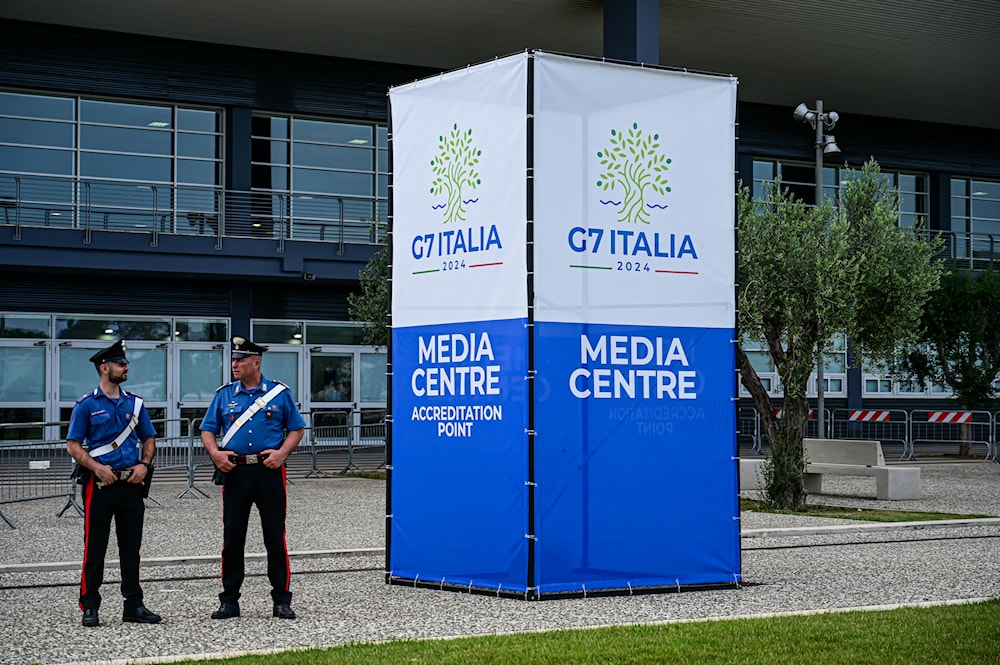G7 agrees to provide Ukraine with $50bln via frozen Russian assets
G7 leaders have long wanted to agree on a deal on using the profits from the interest on 300 billion euros ($325 billion) of frozen Russian central bank assets.
-

Police officers stand outside the G7 Italy 2024 media center in Bari, Italy, on June 11, 2024. (AFP)
Group of Seven (G7) leaders have agreed to provide Ukraine with $50 billion by utilizing frozen Russian assets by the end of the year, the French presidency announced on Wednesday.
"We have an agreement," an official from the French presidency confirmed ahead of the G7 summit in Italy on Thursday, which will focus on supporting Ukraine amid the ongoing war.
G7 leaders had aimed to reach an agreement on using the interest profits from €300 billion ($325 billion) of frozen Russian central bank assets as collateral for a loan of up to $50 billion to aid Kiev.
US President Joe Biden is scheduled to meet with Ukrainian President Volodymyr Zelensky on Thursday during the G7 summit in Puglia, Italy.
"Originally this was an American initiative," the French presidential official indicated, explaining that, in theory, the loan to Ukraine would be repaid with "the proceeds from the frozen Russian assets."
The official noted, however, that if for any reason the Russian assets are unfrozen or the proceeds from these assets are insufficient to finance the loan, G7 will need to consider how to share the load of the loan.
Bloomberg reported in May that the European Union agreed on a plan to utilize the income from blocked Russian sovereign assets to boost Ukraine's rehabilitation and military spending.
The International Monetary Fund (IMF) had cautioned that Western plans to seize frozen Russian assets could pose a threat to the global monetary system and entail unforeseen risks.
NATO needs to adapt nuclear capabilities: Stoltenberg
In a related context, NATO Secretary-General Jens Stoltenberg on Wednesday stressed that the military alliance needs to adapt nuclear capabilities and show the effectiveness of nuclear deterrence amid what he called Russia’s "dangerous rhetoric".
"We have to be able to clearly communicate that our nuclear deterrent is effective, secure and reliable and that is what we are making clear by modernizing, by exercising and communicating what we do," Stoltenberg told a press conference.
He also said that he expects NATO allies to speak more clearly in support of Ukraine’s membership in the US-led military alliance at the upcoming summit in Washington.
On Tuesday, Russian Security Council Secretary Sergei Shoigu pointed out that the world community as a whole shows a restrained reaction to the exercises of Russia’s non-strategic nuclear forces on the territory of the Union State.
Shoigu told Rossiyskaya Gazeta that the exercises with practical testing of the preparation and use of non-strategic nuclear weapons became an adequate response to the active participation of NATO military in the hostilities in Ukraine and the actual permission for Kiev to launch missile attacks on Russian civilian targets, as well as to the growth of NATO’s military potential near the borders of Russia.

 3 Min Read
3 Min Read











